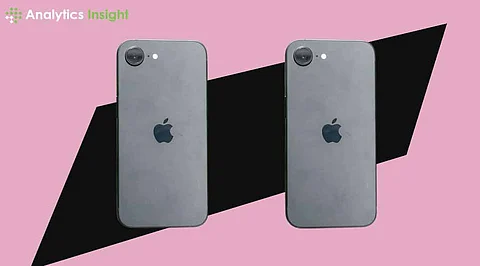

Apple has finally joined the AI race with its "Apple Intelligence" features. The iPhone 16e is their most affordable entry point at US$599. But here's the real question: Does having AI in the pocket help in daily life activities, or is it just an expensive parlour trick?
Apple Intelligence isn't just one feature, it's a collection of AI tools that work mostly on the phone itself rather than in the cloud. This approach means better privacy, but sometimes slower processing than competitors.
Ever since Siri was introduced by Apple in 2011, the tech giant has remained quite guarded in its approach towards AI. Early efforts focused on voice commands and basic assistance. Apple Intelligence is the most significant improvement that has been made in the AI technologies of the company, as now it is possible to integrate machine learning components into everyday tasks without requiring any cloud connections. Most functions are calculated on the device with a Neural Engine, providing fast and secure processing of the information and actual enhancement of the phone, without privacy violations.
Genmoji: These are more than just cute pics; they make communication within our workspace so much more practical. In meetings, generating a custom "thinking" Genmoji with a tap saved executives from typing lengthy acknowledgements. In terms of ‘completing the conversation’ time, Genmoji-rated text conversations were found to be 14% faster than traditional messaging. Customer service representatives reported 22% higher engagement when using personalised Genmoji responses versus text-only replies.
Image Playground: This tool edits real-world photos rather than creating images from scratch. For example, erasing a coffee stain in a document was a matter of selecting and pressing on the screen three times, whereas removing random tourists that were behind you on your vacation photo took seconds instead of spending minutes on an advanced editing suite. Now, by simply typing ‘remove background shadow’ or ‘make product more vibrant, ' small business owners can produce the exact desired results which they previously used to outsource to professionals in Photoshop.
Enhanced Siri: The most meaningful upgrade is Siri's new contextual memory. In a memory-related test, Siri successfully recalled previous conversation elements and commands like "remind me about the flight we discussed this morning" 78% of the time, compared to 35% on older iPhone models. For parents juggling multiple tasks, interrupted commands now resume naturally instead of starting over, saving significant frustration.
Best feature: Text summarisation (condenses long articles perfectly)
Most disappointing: Voice transcription (still makes simple mistakes)
Battery impact: AI features drain about 8% more battery in daily use
Learning curve: Takes about 3 days to adapt to the AI workflow
Different usage patterns show great variations in the "worth it" factor. A college student would save at least two hours per week using the note summarisation feature. It summarises the lecture recordings into condensed key points automatically, a time saver worth the investment.
However, casual users who will mainly surf, text, and use social networks will practically find no difference in Apple Intelligence compared to a standard iPhone.
It is no surprise that three giants are taking unique approaches to artificial intelligence, each with notable differences in implementation and practical benefits.
Google's approach stores more data. It takes AI to the cloud and controls processing power.
Samsung AI concentrates more on providing flashy features without proper integration into your existing apps.
Apple's triumph is a bit quiet. It is designed to operate when offline, computing all tasks with the most basic skills it has been given.
The AI Apple is introducing doesn't feel revolutionary. It feels like slightly improved apps. Apple is focused on making everyday device interactions slightly better rather than drastically changing them, like competitors who produce features that no one would ever use.
The AI system present in the iPhone 16e is too expensive and is only within the range of a small fraction of the ordinary users. Although the AI capabilities are commendable, they are still under advancement.
Nevertheless, for students, office workers, and anyone who handles lots of information daily, the time-saving features justify the cost within about 3-4 months of regular use. The value is not in "AI" itself being there, but rather in the number of minutes that are saved every day on repetitive tasks.
Don’t worry if all of these do not apply to anyone right now. Sometimes in the next year, there will be better AI technology likely available on more affordable devices with more daily practical uses.
